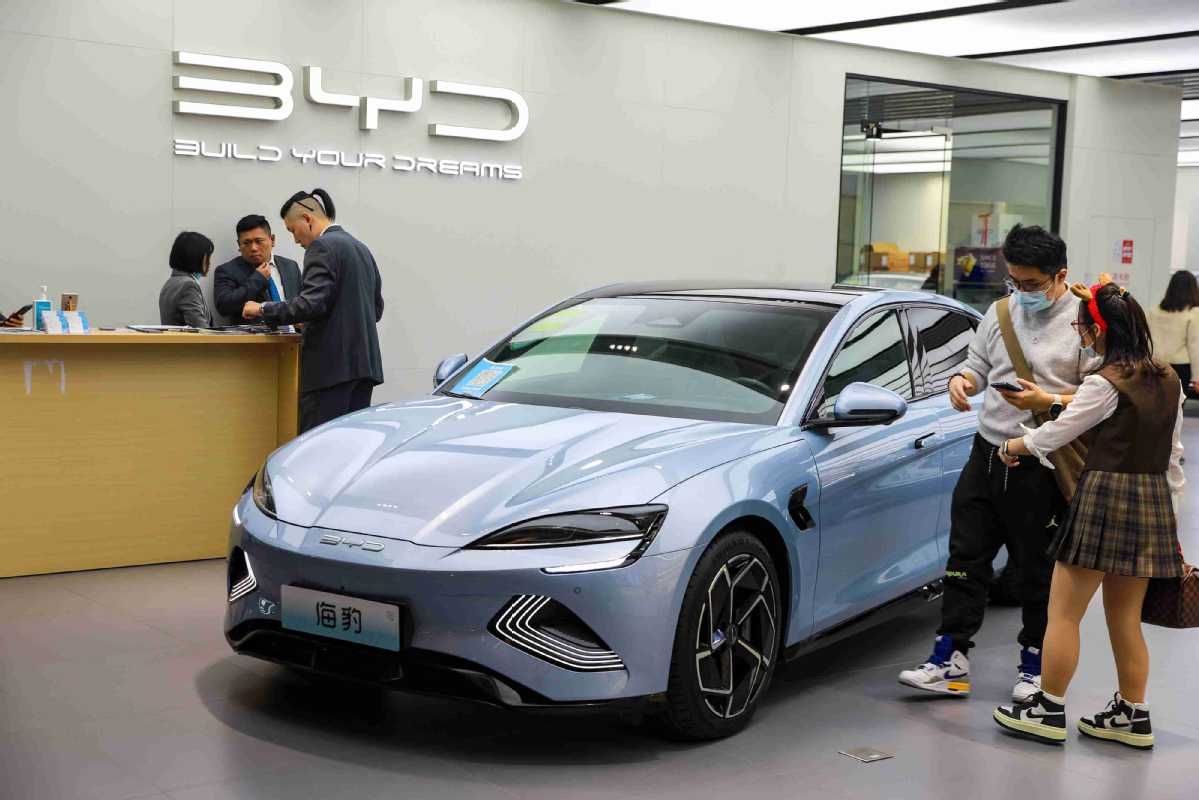Local govts urged investment restraint over NEV startups
By LI FUSHENG | China Daily | Updated: 2023-02-20 09:27

A former top industry official has cautioned local governments against rushing blindly into China's burgeoning new energy vehicle sector, saying that they should refrain from becoming investors in startups.
"They should focus on their main responsibilities, like creating a sound business environment and facilitating administrative procedures," said Miao Wei, former minister of industry and information technology, in an interview with China Daily on Friday.
Miao, now deputy director of the CPPCC's committee of economic affairs, said it is important for local governments to curb their urge to do too much in the sector.
"You (local governments) don't understand that much about the auto industry," said Miao, citing notorious bankruptcies of startups including Byton and Qiantu in which local governments were deeply involved.
"To err is human, but we should not make the same mistakes over and over again," he said.
However, Miao is not in favor of raising the threshold for new players to prevent the burgeoning sector from becoming overheated.
He said startups should be allowed to enter the sector as long as they make the investment themselves, adding that competition is something good for both the industry and consumers.
Miao said there is not overcapacity in the NEV sector, adding that overcapacity to a certain extent is conductive to the sector's high-speed development.
"What we should curb is the overcapacity in the gasoline vehicle segment and we should consider how to tap into their overcapacity for NEV production," he said.
The country's total annual production capacity of passenger vehicles, both NEVs and gasoline models, stood at 40.89 million units by the end of 2021, according to the China Passenger Car Association. In the same year, total passenger vehicle sales stood at 20.15 million units, of which 2.99 million were NEVs.
Passenger NEV sales more than doubled to 6.49 million units in 2022, but total passenger deliveries stood at 20.54 million units, basically the same as 2021.
Miao is optimistic about the NEV industry's upward trend. He estimated that total NEV sales, including both passenger and commercial vehicles, will account for over 30 percent of total deliveries this year in China.
In 2022, deliveries of passenger and commercial NEVs reached 6.89 million, accounting for 25.6 percent of total vehicle sales in China, according to the China Association of Automobile Manufacturers.
He said the withdrawal of subsidies at the end of 2022 may cut sales for months, as some placed orders late last year to be eligible for them, but it will not change the trend.
"It was made public a long time ago that the policy would expire by the end of last year," he said.
Miao has called for the authorities to offer clearer and more specific plans about relevant NEV policies, like the purchase tax-free plan. He said the government should be clear on how long such policies will be available instead of extending their date of expiration on short notice, which makes it difficult for carmakers and customers to plan in advance.
























